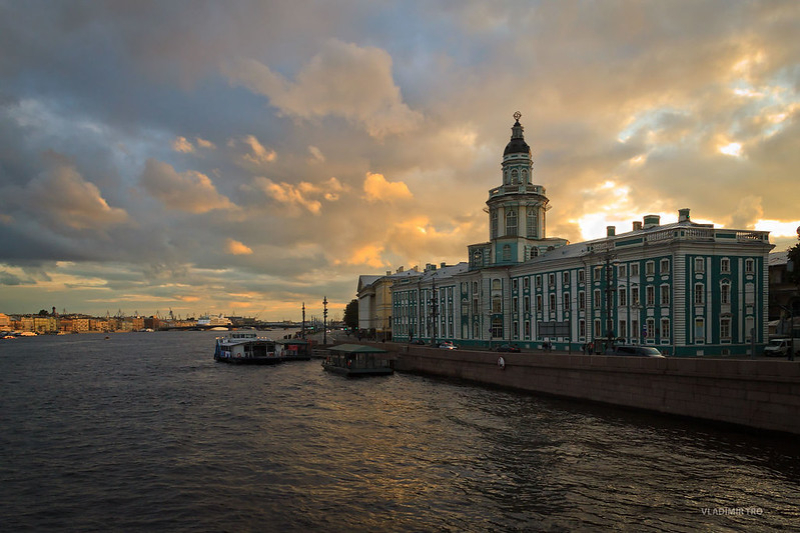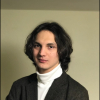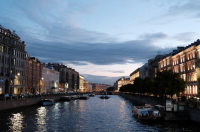Dmitri Mendeleev
If you were to ask a Russian about Mendeleev, you would most likely hear this story: supposedly exhausted from his failed attempts to classify the elements, the scientist fell asleep at his desk and had the periodic table revealed to him in a dream. If your takeaway is that the desk must have had some magical properties, then you can tap into that power for yourself by visiting the scientist’s apartment-turned-museum on the premises of St. Petersburg State University (NB: you can't touch the desk, though!).
The museum is located within the historic Twelve Collegia building, in the very rooms where professor Mendeleev and his family lived for over 20 years. Its archive, which includes the scientist’s personal library, is notable for containing most of his personal notes and correspondence, as well as the original manuscripts of some research papers – including the first drafts of the Periodic Law.
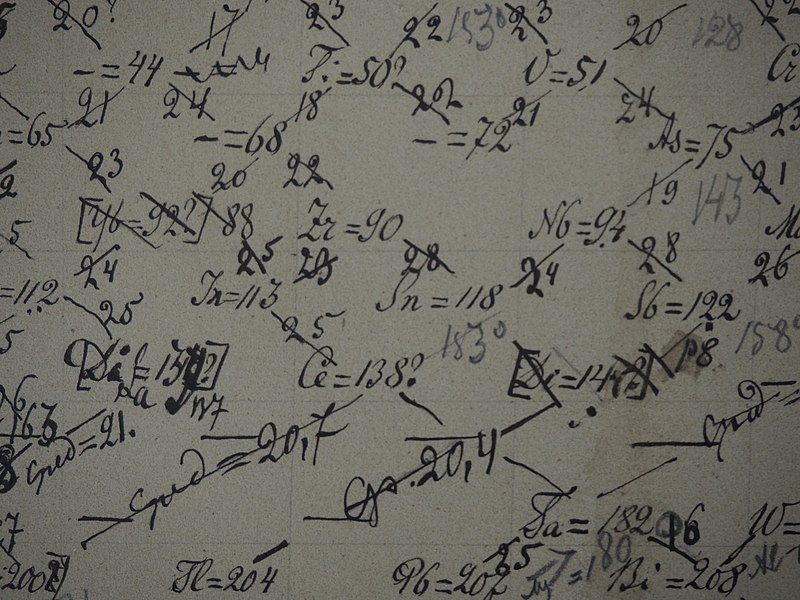
One of Dmitri Mendeleev's hand drawn periodic tables on display at the museum. Credit: Scotted400 / Wikimedia Commons / CC0 1.0
Where: St. Petersburg, Mendeleevskaya Line 2
Working hours and additional information: check the museum’s website, VK page, and TikTok account
Mikhail Lomonosov
A polymath comparable to the likes of da Vinci and Franklin, Mikhail Lomonosov is considered the father of Russian science. His achievements range from fundamental discoveries in chemistry and astronomy to authoring the world’s first paper on geology. Despite the fact that the venerable Moscow State University is named after him, Lomonosov actually spent the majority of his life in St. Petersburg, where traces of his work still remain.
To see St. Petersburg as Lomonosov would have seen it, you can visit one of the oldest buildings in the city: the Kunstkamera, which served as the first headquarters of the Russian Academy of Sciences. Not unlike a wizard from a fantasy novel, Lomonosov conducted his research in a tower where the building’s observatory was located. Nowadays, these halls hold several of the scientist’s artworks and mosaics, as well as examples of surviving scientific instruments from that era. And don’t miss out on the museum’s other exhibits: the Kunstkamera is the place to go if you want to see just how much science has advanced in 300 years!
Where: St. Petersburg, Universitetskaya Emb. 3
Working hours and additional information: check the museum’s website, VK page, and Telegram channel
Ivan Pavlov
Even if you know nothing about physiology, you’ve probably heard of Dr. Pavlov’s dogs. He used the animals to prove that reflexes are conditioned into our brains via external stimuli, which then was applied to explain the root causes of human behavior. This extraordinary breakthrough got him the first Nobel Prize in Russia’s history.
Dr. Pavlov’s legacy lives on, as does his research institute in the Leningrad Oblast, which is still up and running – and recently opened its doors to visitors with a new modern exhibition, showcasing the very same rooms where scientists delved into the depths of cognition.
Pavlov’s immense scientific contributions were somewhat marred by the unethical nature of his experiments. The scientist did acknowledge the cruelty inherent in animal testing, and had the dogs honored with a monument that is located on Akademika Pavlova St. 12.
Where: Leningrad Oblast, Pavlovo, Bykova St. 36В
Working hours and additional information: check the museum’s website (in Russian) and VK page
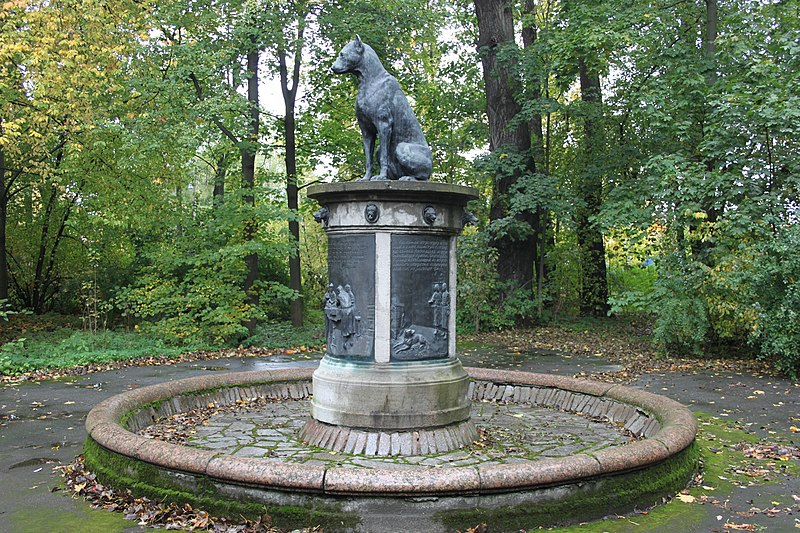
The monument to Pavlov’s dogs. Credit: FotoRand / Wikimedia Commons / CC BY-SA 4.0
Alexander Popov
Here is a fact that might surprise some foreigners: in Russia, Guglielmo Marconi is not recognized as the inventor of the radio. Instead, Alexander Popov, an engineer who developed a radio receiver in 1895, gets all the credit. While historians can debate why this is the case, there is little doubt that Popov was an extraordinary inventor.
Contrary to what detractors may claim, scientific progress is only made possible through cooperation, so radio enthusiasts should not neglect visiting the Museum of A.S. Popov at the St. Petersburg Electrotechnical University “LETI.” The unique original pieces of Popov’s technology provide an extraordinary insight into the development of radio technology in Russia. There, you can discover how radio went from a few prototypes to being the basis of all communication in modern society!
Where: St. Petersburg, Professora Popova St. 5
Working hours and additional information: check the museum’s website
Want to learn more about the history of science in St. Petersburg? Here you can read about all the Nobel Prize winners who lived in the city – and here are a few other incredible museums for you to visit.
